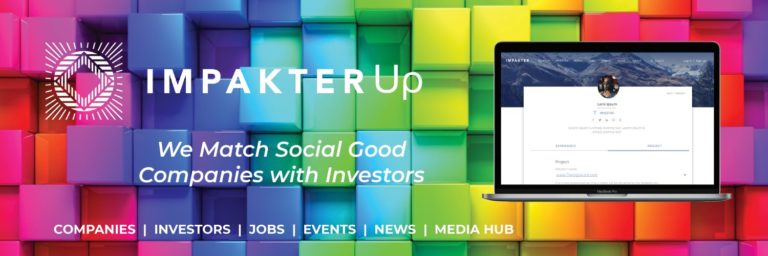Updated 5 May 2021. White House staffers felt there was little they could do after presidential orders made them lower the flag in remembrance of the 10 victims gunned down in a supermarket in Boulder, Colorado, on March 22, 2021, as the flags had remained at half-mast from the Atlanta shooting six days prior. Gun violence, as President Biden remarked, continues to be an “international embarrassment” for America. His efforts to push back gun violence and achieve some working form of gun control come up against a range of factors that have shaped American society, not least the gun lobby led by the National Rifle Association that has succeeded in blocking the plans to modernize the one Federal agency tasked with gun-tracing, the Bureau of Alcohol, Tobacco, Farms and Explosives (ATF). Absurdly, the agency still lacks a searchable database and is forced to use an antiquated paper-based weapons-tracing system that recently caused the collapse of a floor under the weight of towering piles of paper.
Perpetual dispute regarding freedom and gun control amongst America’s elites has seen the senseless and unimaginable reality of mass shootings becoming prevalent normality in today’s America. One that has become increasingly politicized, yet perceived with diminishing surprise. After becoming the seventh mass shooting in a staggering seven-day span, the Colorado shooting provides a somber reminder that Americans face yet another epidemic plaguing the nation in the continual and incessant scourge of gun violence.
Firearms have been traditionally tied with American culture, a tie that has recently received mounting scrutiny. Whilst America is only second to Brazil in firearm-related homicides, the right to bear arms is inscribed in the American constitution, which many conservatives take for gospel. Ardent gun-reformist campaigns are confronted by pro-gun advocates with equal force and vigor.
America’s great political divide is glaringly reflected through state variances regarding gun-control measures. Yet, with the shootings this past month occurring from Atlanta and California to Dallas and Philadelphia, firearm-induced grievances are felt nationwide.
A total of 115 U.S. mass shootings have already occurred in 2021 alone, with at least 45 occurring in the last month. This followed a rise in homicides that soared in several major cities last year as more than 19,000 people were fatally gunned down – more than double the number in 2019 – alongside record-setting firearm sales despite a global pandemic that had left millions of Americans homebound. With the facts providing more reasons to abandon the free use of firearms, what is preventing the U.S. from enforcing commonsensical regulations countrywide?
Who Benefits: Purchasers or Arms Dealers?
The discourse around guns has regularly focused on those who purchase firearms, whilst ignoring the role of manufacturers and arms dealers who, in fact, have far greater interest vested in the industry’s growth. During a year of unrest and tension in the midst of a global pandemic, Americans have bought guns in record numbers, from physical and online stores such as firearms outlet canada, over the past 18 months, a surge that is largely down to first-time buyers.
America’s firearm industry exists as a significant player in the nation’s economy. As of 2020, firearm manufacturing industries had a market size of $15 billion, a 2.3% increase from 2015. With such considerable levels of monetary gain in an industry that effectively “arms” the occurrence of devastating events, one must wonder, in this society entrenched in capitalism, whether marketers promote the Second Amendment in efforts to uphold traditional values, or if the ideological semblance of firearms has become commodified in a bid to make more sales.
Conservatives have continuously tried to synonymize the right to bear arms with freedom. Yet in a society that elevates self-reliance to an absolute good, their idealistic aspirations speak more towards unrelenting individualism than to any notion of freedom itself.
When TV host Bill O’Reilly called the Las Vegas music festival shooting “the price of freedom,” an adverse conception of not only American rights but human rights, was unveiled. A disconcerting precedent that had inextricably tied the Second Amendment to a set of absolutist principles allowing little to no room for dispute. Demonstrating a fallacy of self-righteousness, this form of rhetoric maintained freedom at all costs including innocent lives, further blurring the line between freedom and absolutism, a line of which is highly susceptible to transgression, yet with devastating consequences.
Gun advocation, in this light, stems more from a yearning for power, rather than freedom – the idea that I could and should have the means to take matters into my own hands with minimal dependence on authority. This particular social thought is grounded in a deep mistrust for government and in a neoliberal ideology that seeks to minimize government action. It is underpinned by an encompassing sense of traditional masculinity and virility, which has exacerbated the desire to bear arms and has persistently worked to undermine the role of government with regards to one’s safety and security. A ploy that shadows an almost Hobbesian caveman-like mentality has been masqueraded as freedom, but in reality, has little to do with freedom.
Interestingly enough, among people who reside in relatively free nations, it seems as though the most basic rules trigger an array of existential threats to one’s livelihood. Be it lockdown protests, free speech advocacy, or the right to bear arms, there seems to always be a cause to fight for, irrespective of all the liberties one may enjoy in a state as “free” as America. The reality is, for such individuals, no amount of freedom is enough.
This sense of entitlement amongst protesters who jump at any opportunity to vouch for freedom reveals a society overdosed on freedom, a phenomenon that is not exclusively felt amongst conservatives but amongst those entrenched in relative privileges. Gun control measures would not have Americans, including conservatives, left like caged birds, just like those in many other free countries are not. What such measures would do is to help people carry out basic chores on their to-do list, such as trips to the supermarket or dropping off their children at school without the fear of death from another loaded gun.
Gun Control: Resisting Change At All Costs
In a time where social change has continued to accelerate at unprecedented levels with the rise of activist movements regarding climate change, gender inequalities, racial justice, etc., the right to bear arms is merely another facet aggravating the socio-political divide in an already fractured nation.

The past century has seen our moral compass experience a dramatic reconfiguration. What was once considered socially acceptable now breaches tolerable lines. Succeeding generations have become increasingly conscientious regarding the ethical underpinnings of cultural norms, which has seen many practices, in America and elsewhere, become obsolete, and rightfully so. With all these social phenomenons and abandonments of tradition, the 21st century has proved to be the most polarised phase in America’s history.
The very essence of conservatism is threatened when confronted by change, and to some, nothing threatened traditional America more than when Barack Obama took up office in 2008. Considered as a moment of monumental significance, Obama, and all that he had symbolized, had been met with the same habitual rhetoric perpetuated among conservatives following democratic success: “The end of America as we know it.” Mounting dissent to change, and its all-encompassing threat to a national identity, was embodied by Donald Trump, a socially constructed messiah, risen from public contempt, sent to reverse the change and “Make America Great Again.”
THE SECOND AMENDMENT WILL NEVER BE REPEALED! As much as Democrats would like to see this happen… NO WAY. We need more Republicans in 2018 and must ALWAYS hold the Supreme Court!
— Donald Trump, Twitter
By contrasting such cataclysmic democratic futures with a fanaticized conceptualization of the past, Trump represented the antithesis to the change Obama brought. His MAGA ideal had captivated America’s conservatives who saw in it a reinvigorated sense of hope to return to the nation’s former glory. One predicated on a fabricated and manufactured conception of American history that had turned a blind eye to centuries of racism, sexism, discrimination, and violence. And whilst America has managed to alleviate some of these societal ills, violence in the form of firearms has remained largely unattended.
Doing nothing won't stop our country's gun violence epidemic. Congress must act to #DisarmHate. pic.twitter.com/0kbF22nnm4
— Barack Obama (@BarackObama) August 17, 2016
Fear of change was only exacerbated following Biden’s victory, not because Trump had taken Republicans to a land of such fulfilled promise, but because he failed, and with him, the idealistic hopes he had instilled within Republican hearts of unwinding the clocks back to a greater time. As this fear grows, defending tradition becomes ever more so vital, which explains the relentless conservative stronghold over the right to bear arms.
Related articles: Gun Violence: How Better Gun Control in the U.S. can Save Black Women | 2020 Gun Rally: Aiming for Peace
For many nationalists, America is seen almost as its own divine entity with a set of innate and unmalleable identity-affirming characteristics. Firearms are one of these qualities, hence why they have become inextricably tied to the conservative conception of nationhood. This conception disseminates an array of symbolic notations, including the preservation of freedom and safeguarding of the Founding Fathers legacy, symbols of which are felt to be under more threat now in a Post-Trump era than ever before.
The reality is that statistical proofs underscoring the societal detriments of firearms will continue to go unheeded as the symbolic ideals that they express transcend any degree of logic or reason. For conservatives, championing the Second Amendment is a final shot of holding on to not just their own identity, but their families, their loved ones, their forefathers, and the land their ancestors have inhabited and protected since America’s inception. Guns will continue to remain a problem unless these symbolic associations are lifted, which may require something that is unlikely to happen: A seismic cultural paradigm shift within the red half of America.
Editor’s Note: The opinions expressed here by Impakter.com columnists are their own, not those of Impakter.com. — In the Featured Photo: In This Photo: “Gun Control Now.” A student participating in National Walkout Day at the Capitol, Washington DC. — Featured Photo Credit: Flickr











